Category: SS Lesson – Old Testament
-
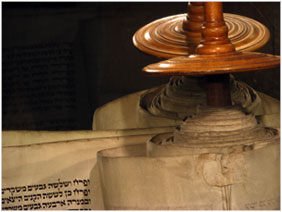
OT Lesson 17 Study Notes: Deuteronomy 6; 8; 11; 32:1-4, 15-18, 30-40, 45-47
Background Feel free to skip this background discussion if you aren’t interested in it. You can skip to the study questions without losing anything. Before taking up two points, however, let me say that I am not generally in favor of bringing much scholarly discussion into Sunday School lessons or our study for them, I…
-
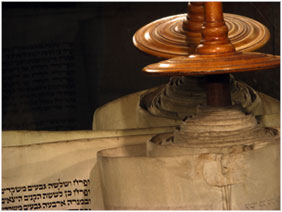
OT Lesson 16 Study Notes: Numbers 22-24, 31
Who is Balaam? All of a sudden a non-Israelite prophet appears. Who is he? Based on Numbers 23:7, Word Biblical Commentary: Numbers, page 263) suggests that he is a Syrian. Is he really a prophet? If no, why not? If yes, in what sense of the word? (Archaeologists have discovered an inscription mentioning Balaam in…
-
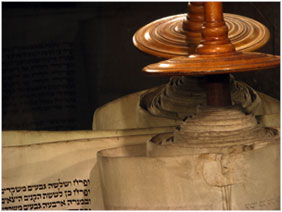
OT Lesson 15 Study Notes: Numbers 11-14, 21:1-9
Besides the chapters of Numbers assigned for this lesson, I also recommend chapters 16, 17, and 20. It is unfortunate that we have no lessons from Leviticus. Though it is not immediately obvious how we should understand those scriptures and apply them to ourselves, the exercise of doing so can be very beneficial. I have…
-
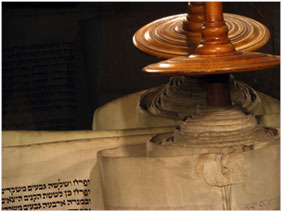
OT Lesson 14 Study Notes: Exodus 15-20, 32-34
As ever, there is a great deal of material in this reading. Perhaps the overviews I provide of each chapter (including some material on chapters 21-21) will help put matters in context. As you read the chapters ask yourselves what kinds of parallels, types, and other meanings you see. How do these things help us…
-
OT Lesson 13 Study Notes: Exodus 1-3, 5-6, 11-14
Before looking in detail at the scriptures for this week, consider the following possible chiastic parallels between the story of Moses’s life and the story of Israel’s experience. Of course parallels are what we make of them. Some may see these as more tightly like one another than others do. Some may be skeptical about…
-

OT Lesson 12 Study Notes: Genesis 40-45
Genesis 40 Verse 1: How long do you think “after these things” might represent, a long time or a short time? Why do you think we hear nothing further about Potiphar’s wife and what became of her? Verse 2: Note that “butler” is probably better translated “cup bearer,” and “baker” is probably better translated “royal…
-

OT Lesson 11 Study Notes: Genesis 34 and 37-39
Genesis 34 What was the sin of Dinah’s brothers? Was it that they took vengeance? Reread the Abrahamic covenant to see what it promises, and think about that covenant as it relates to this event. Did they violate that covenant? How does this chapter portray Jacob? Beyond the rape, what does Shechem do, through his…
-

OT Lesson 10 Study Notes: Genesis 24-29
I will concentrate my questions on Genesis 25:19-34 and 27:1-45, and I will add Genesis 33:1-20 to the reading because I think it rounds out the story of Genesis 27. Chapter 25 Verse 19: We expect a genealogy to follow when we are told, “these are the generations of so-and-so,” but here none follows. What…
-
OT Lesson 9 Study Notes: Abraham 1; Genesis 15-17, 21-22
I repeat the reminder: these are notes for study rather than notes for a lesson. Of course study notes can help one prepare a lesson, but my intention is less to help teachers prepare lessons (though I have no objection whatever to them finding my notes useful for that purpose, if they do) than it…
-

OT Lesson 8 Study Notes: Genesis 13-14, 18-19
Chapter 13 Verses 1-2: Are there elements in Abram’s journey to Canaan that typify Israel’s later exodus from Egypt? If there are, what would be the point of that parallel? Verse 1: Notice the difference in the way the families are described in Genesis 12:5 and here. Does anything in these verses suggest a change…
-

OT Lesson 7 Study Notes: Abraham 1:1-4; 2:1-11; Genesis 12:1-8; 17:1-9
Abraham 1 Verse 1: Why does this work use the name “Abraham” for the person in question when we know from Genesis that his name was as yet still “Abram”? What does it tell us that Abraham says “the residence of my fathers” (plural) rather than “the residence of my father” (singular)? Why did Abraham…
-
OT Lesson 6 Study Notes: Moses 8:19-30; Genesis 6:5-22; 7:11-24; 8:1-22; 9:8-17; 11:1-9
Moses 8 Verse 9: The Hebrew of Genesis 5:29 shows us that Noah’s name means “rest.” How does his father, Lamech, explain the name? Is Noah’s name significant to the story of the flood? Verses 19-21: Why don’t the people listen to Noah? What do the things they say about themselves tell us about them?…
-
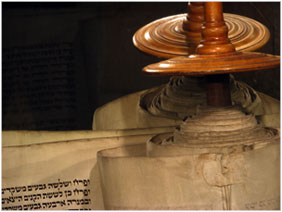
OT Lesson 5 Study Notes: Moses 5-7
As always, remember that these are questions for studying the reading assigned more than for planning the lesson itself. Even then, you are certainly going to find more questions here than you can deal with in one study session, though not, perhaps, more than you can deal with in a week. However, that said, the…
-
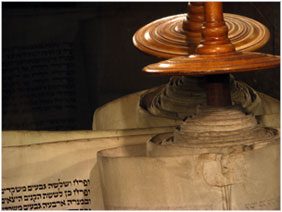
OT Lesson 4 Study Notes: Moses 4; 5:1-15; 6:48-62
These notes focus on Moses 4, giving less attention to the other scriptures for this lesson. However, the other readings are necessary to understanding chapter 4. (The study questions for Moses 4:1-4 were part of the materials for lesson 2. I repeat them here so that they will be convenient.) Note that if Moses 2…
-
OT Lesson 3 Study Notes: Moses 1:27-42, Moses 2-3
A reminder about these notes: They are intended to help people study the assigned material for this week’s Sunday School lesson. They are not intended as an outline for how to teach that lesson, though I assume that by studying the material a person might get ideas about how to teach it. And a note…
-
OT Lesson 2 Study Notes: Abraham 3; Moses 4:1-4
Abraham 3 Verses 1-19: Why did the Lord reveal these things to Abraham? More important: why did he think it important to reveal them to us? Verse 1: Why is it important that Abraham tell us that he received the revelation that follows through the Urim and Thummim? Verse 2: Assuming that the throne of…
-
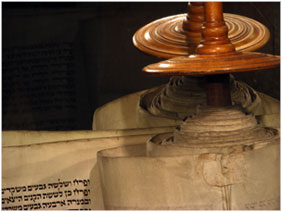
OT Lesson 1 Study Notes: Moses 1
As the title of this post says, these are notes for studying the lesson rather than for teaching it, though presumably one who studies the lesson will have material from which to teach it.
-

Studying the Old Testament
What are the scriptures for? How should we use them? How do we use them? “Proof-texting” is a procedure that begins by assuming we know the doctrines and then searches through the scriptures to find something to back up the belief. Because it begins with what we assume we know rather from what the scriptures…
-
Understanding the Old Testament
Don’t expect Old Testament writers to have written their histories the way we would have written them.
-

What is the Old Testament?
The version of the Old Testament used by Protestants and Jews today contains 39 books. Catholic Bibles include 9 more books, as well as 2 additions to Daniel and 1 to Esther. At least some of those 9 additional books were used as scripture by Saints of the 1st century AD. For various reasons (mostly…
-
An Overview of Genesis
It is daunting to be posting anything about scripture when Eric Huntsman is posting alongside. It ought to be daunting in any case, but it is easier to ignore the fact that I am a mere dabbler when my posts stand alone. In any case, I will be posting revised versions of my study questions…
